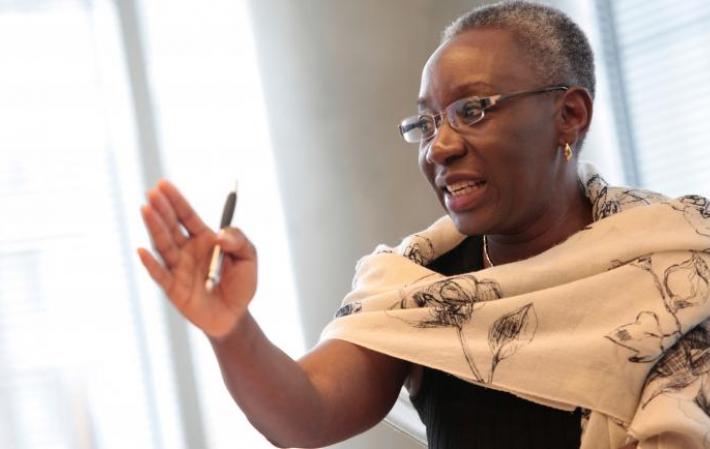
Sandra Pepera, Senior Associate and Director for NDI's Gender, Women and Democracy team.
Each week NDI’s Citizen Participation team provides a resource to assist NDI staff in meeting the objectives of their programs. This past month’s resources analyzed the relationship between minority groups and extreme poverty, ways in which authoritarian governments control the media, steps to increase women’s political participation and real-life lessons on how democracies can take hold.

A Burmese anti-government protest in front of the Petronas Twin Towers. Photo credit: Off2riorob CC BY
In the four weeks between November 8 and December 6, 2015, the peoples of Myanmar (Burma), Burkina Faso and Venezuela delivered surprises: resounding defeats to military rule, strongman domination and populist authoritarianism. These bright spots are the consequence of perseverance by democratic activists in the face of repression. They also highlight the importance of elections as a peaceful means for people to bring about change.
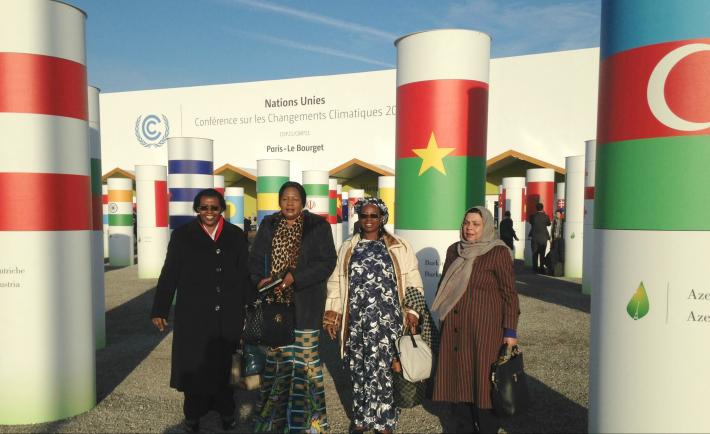
Members of the GWLP delegation of women parliamentarians to the COP21 Summit in Paris, from left to right: Margaret Nantongo Zziwa, Uganda; Ake Camille Epse Akoun, Ivory Coast; Joséphine Drabo Kanyoulou, Burkina Faso; and Tayeba Zahidi, Afghanistan. Photo by Aretha Francis.
Under the Global Women's Ledership Program supported by USAID, NDI sent four women parliamentarians to the COP21 climate change summit in Paris.
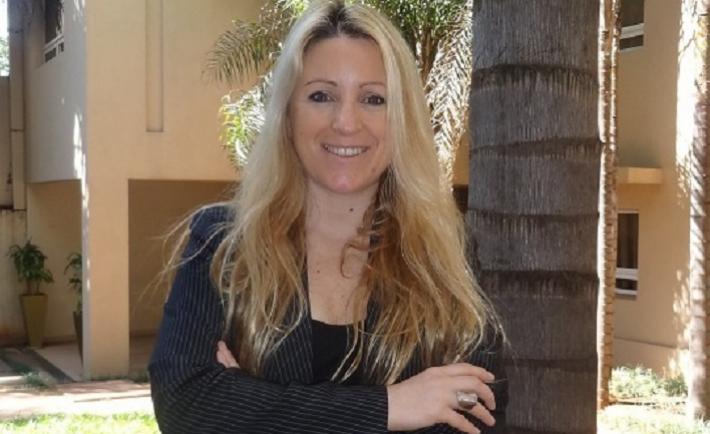
Flavia Freidenberg is a researcher and professor at the Institute of Legal Research of the National Autonomous University of Mexico.
Andrea Fernandez, NDI resident program officer in Colombia, recently interviewed Flavia Freidenberg, researcher and professor at the Institute of Legal Research of the National Autonomous University of Mexico. Flavia answered a number of questions about strategies to increase women’s political participation in Latin America. Read highlights from their interview or watch a video of the full discussion.

The LGBTI communities in Guatemala uses art to increase tolerance, understanding and political participation.
In the captivating play “Transforming Thoughts: The Realities of the LGBTI Communities,” members of the lesbian, gay, bisexual, transgender, and intersex (LGBTI) communities showed the harsh realities of life as a transgender woman in Guatemala. Drawing on stories from their personal lives, and the broader LGBTI communities, the actors weave together scenes demonstrating lack of opportunity, abuse and survival. I
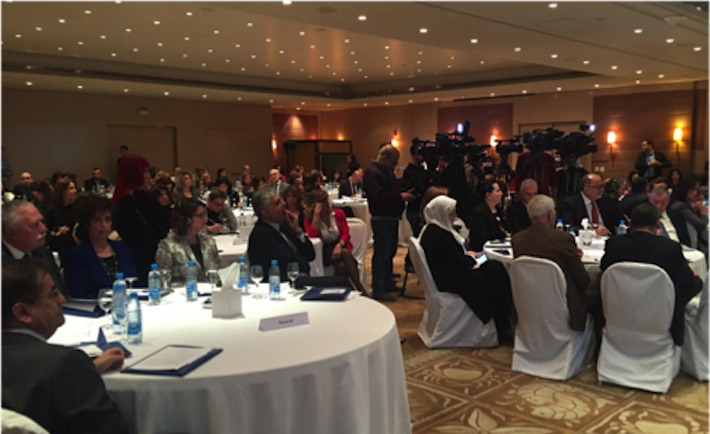
Members of the Women in Parliament coalition of Lebanon gather to discuss introducing a quota for women's representation into the election law.
Lebanese women have a long legacy of leadership in business, media, the arts and academics. Despite these contributions, and the fact that we make up half of the population, Lebanese women have been largely excluded from active participation in the country’s political life. NDI worked with the Women in Parliament coalition as it developed its strategy and messages to appeal to politicians, presenting evidence-based arguments for why women’s participation contributes to better governance. Now, the Women in Parliament coalition is convening MPs and civil society to discuss how to implement a gender quota in Lebanon's parliament.
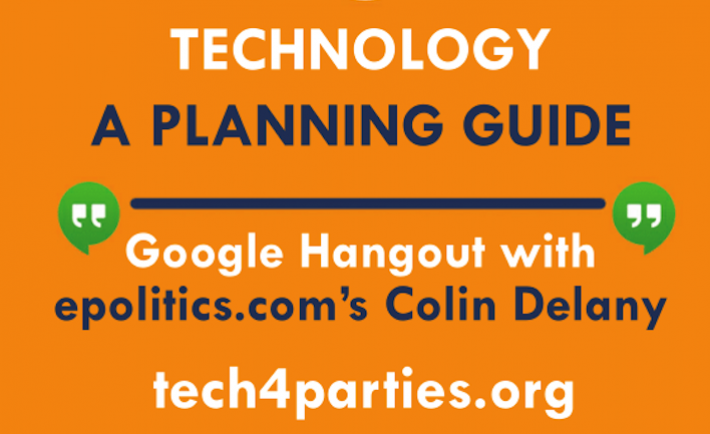
NDI's Politicial Parties team released a new guide to help parties taking advantage of the opportunities provided by Information Communication Technologies (ICTs).
On November 13th, the National Democratic Institute hosted an online ‘Question and Answer’ session with Colin Delany, editor and founder of epolitics.com. Delany was a lead contributor to NDI’s new tech guide, which, among other things, aims to help parties deploy new information communication technology (ICT) tools to organize and reach out to contacts, increase two-way communication with citizens, and conduct more strategic outreach.
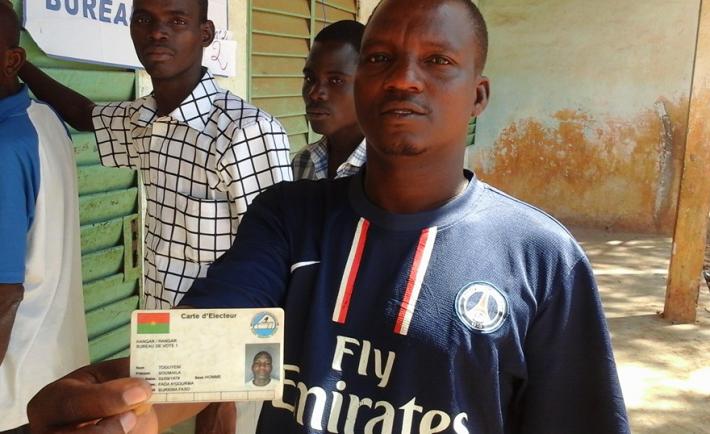
A voter in Burkina Faso displays his ID card. Many observers have described the recent election as ‟the freest and fairest" in the country’s history.
In the past week, the people of Burkina Faso again surprised many Africa watchers – the third time in 15 months – by holding what many observers have described as ‟the freest and fairest" elections in the country’s history.
With funding from the United States Agency for International Development (USAID), the Consortium for Elections and Political Process Strengthening (CEPPS) is implementing the program “Elections: More Inclusion, Less Violence” to monitor and mitigate electoral violence and illicit financing of electoral campaigns, support the Supreme Electoral Tribunal’s administration of the elections, strengthen traditionally marginalized civil society groups and increase social inclusion in the electoral process. Each CEPPS partner invited one of their local partners to discuss a range of topics, including the political crisis, election results, the administration of the elections, civic political participation and the importance of making the electoral process more inclusive and representative of all members of Guatemalan society.
NDI is launching a new and improved version of DemTools, a technology toolkit for civil society and government, on December 9 in Washington, D.C. We’ve put a lot of sweat, tears, and code (no blood so far) into this adventure and are ready to share it with the world. DemTools 2.0 upgrades and expands our existing set of tools, which was deployed by 82 organizations around the world in the last year.